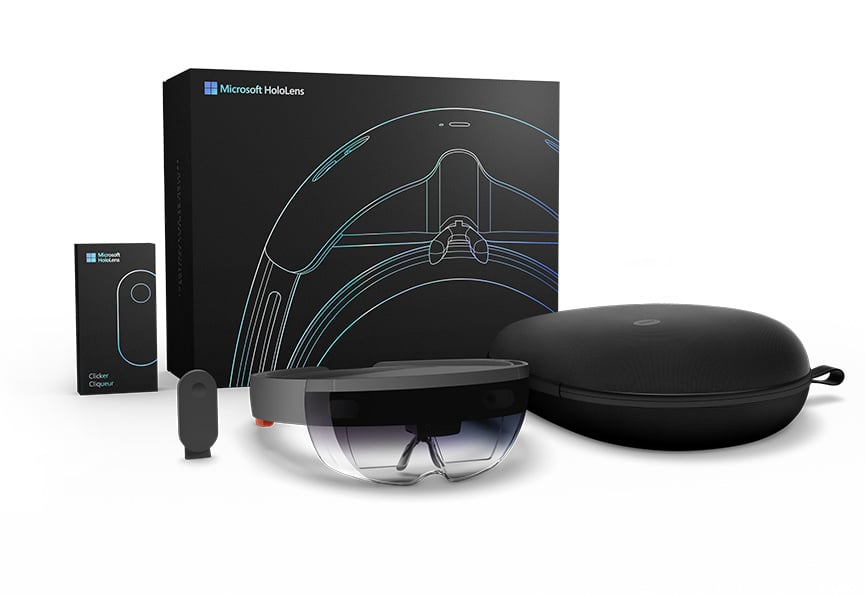7 Ways Microsoft Hololens Will Transform Healthcare
Microsoft recently announced their HoloLens, the first holographic computer that allows users to interact with holograms in their physical environment. While it looks like something that Doc wore in Back to the Future 2, this technology wearable features see-through high-definition lenses, no wires or cables, and spatial sound recognition.
If you aren’t familiar with the HoloLens, it might help to watch the video below to understand this science-fictionesque first ever holographic computer before reading the post.
[embedyt] https://www.youtube.com/watch?v=EIJM9xNg9xs[/embedyt]
The applications of this world-changing innovation are endless. But, for now, let’s focus on healthcare. Here are 7 ways that the HoloLens will transform the nursing profession and improve patient care.
#1 Nursing Education
The HoloLens will parlay nursing education in undreamed-of ways: from hologram modeling of organs and body systems to simulated hospital environments to virtually guided skills instruction. Good-bye live cadaver dissection, hello augmented world where every student has an opportunity to explore the dissection process. The HoloLens can also enhance clinical experiences by simulating infinite healthcare settings and scenarios. Certain skills such as nasogastric tube insertion, urinary catheterization, and PICC line placement could be practiced virtually while professors provide step by step guidance visible on the students’ lens.
#2 Disaster Training
The HoloLens can create simulated environments allowing nurses to safely but realistically train for disaster response. Just as NASA is using the HoloLens to explore the surface of Mars, so will nurses use the HoloLens to prepare for medical response to earthquakes, plane crashes, tsunamis, and terrorist attacks. Through augmented reality, the HoloLens could connect nurses with disaster scenarios allowing them to practice necessary skills in a virtually present environment.
#3 Telemedicine
The HoloLens will altogether transform the way nurses think about telemedicine. No longer will patient and provider sit behind two screens with a compartmentalized view of each other’s world. The HoloLens could allow nurses to send themselves into the patient’s environment and interact more realistically. Suddenly, telemedicine becomes personalized and allows for a more effective therapeutic use of self.
#4 Emergency Response
With the HoloLens, a call to 911 means the medical team can immediately see the emergency situation. When minutes and even seconds can matter, the HoloLens will allow clinicians to coach an uncertain bystander on first aid techniques such as cardiopulmonary resuscitation while waiting for medical professionals to arrive.
#5 Cultivating Understanding
Patients may use the HoloLens as a form of self-expression. The schizophrenic individual may render an environment that reflects his struggle with auditory and visual hallucinations. The psychiatric nurse could then use the HoloLens to step into his world and truly experience a life plagued with hurtful voices and terrifying images. The HoloLens serves as a medium for patients to illustrate their lives and garner empathy from healthcare providers.
#6 Patient Education
Patient education will become more effective and personalized using the HoloLens. Nurses can teach patients about their upcoming surgery or provide detailed discharge instructions using hologram modeling of organs, medical devices, and procedures. Teaching a child how to use her inhaler suddenly became a lot easier and more fun thanks to the HoloLens.
#7 Personalized Prostheses
Prostheses could be precisely tailored to the individual using holographic rendering and 3D printing made possible by the HoloLens. While the bionics field continues to expand, most prosthetists still use traditional techniques like molding and casting to design new limbs. Using Microsoft HoloLens, a personalized prosthetic might be designed to fit the actual shape of the patient’s anatomy.
And that’s just the beginning! The powerful and one-of-a-kind technology behind the HoloLens makes the possibilities endless. As this holographic computer becomes available, I can only image the unique ways nurses will use the HoloLens to improve patient care.
Share on Facebook
Share on Pinterest

1 Comment on "7 Ways Microsoft Hololens Will Transform Healthcare"